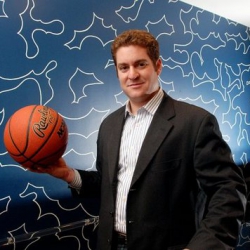
Marc Edelman Wrote the Against the House DFS Is Likely Illegal and Could Bring Unwelcome Congressional Oversight
Marc Edelman wrote an article for Forbes recently which discussed a brand new aspect of daily fantasy sports: against-the-house contests. The online version of the business magazine explained what this new type of gaming is, then argued it likely would prove to be illegal. The Forbes article also said against-the-house gaming “could destabilize the industry”.
The article pointed out that the brand name DFS services like FanDuel and DraftKings do not allow against-the-house betting. It also pointed out the traditional fantasy sports purveyors like Yahoo! and ESPN do not allow against-the-house wagers. Only smaller outfits like BetAmerica, HotRoster, DraftDay, and FantasyUp allow such gaming to take place.
Based on Knowledge and Skill
Mr. Edelman, who is an Associate Professor of Law at the Zicklin School of Business, Baruch College, City University of New York, said that against-the-house daily fantasy sports betting is almost certainly illegal under the provisions of the Unlawful Internet Gambling Enforcement Act of 2006. Under the UIGEA, fantasy sports is legal, but only if the “winning outcomes reflect the relative knowledge and skill of the participants.”
Traditional fantasy football gaming played in yearly local leagues or even online leagues is player-versus-player. One owner is likely to have an advantage, if they do more research, have a better gut instinct about player moves, or otherwise is a better talent evaluator than the competitors. Not so in against-the-house games, in which the player is pitted against experts at the online daily fantasy site.
What Is Against-the-House DFS?
Against-the-house gaming does not pit players against other players. Every competitor is playing against the lines set by the DFS service, which sets up the competition to favor itself. One player’s winning does not affect another player’s chances of winning: in fact, everyone has less than a 100% expected return. Against-the-house daily fantasy sports returns the player to the world of sports gambling, with all its various disadvantages.
Chance of Defaulting on Bets
Also, new operators have a chance of defaulting on payouts. Imagine one of these DFS sites offering a wager in which a player wins $1,000,000 if a certain number of players (say 9) hit a home run in a given day. Most days, no one would win that bet. But if several gamblers selected a similar combination of players and they all won the bet on the same day, it might be more than a cash-strapped startup website could afford.
Therefore, banked games or games against the house have a chance where the gamblers never get paid. In traditional DFS gaming, the website simply charges a small fee to host PvP gaming. The site’s owners collects a small amount of money on every single contest, thus assuring a stable business model. FanDuel and DraftKings don’t make a whole lot on any one contest, but they succeed on the strength of a high-volume of wagers.
Undermining Legal Fantasy Sports Gambling
Let’s go back to the phrase “destabilize the industry” for a moment. Destabilize is a bold word, because the implication is the newer form of DFS contest might put the industry in the cross-hairs of the anti-gambling public policy groups. When such people learn against-the-house gaming exist in the fantasy sports industry, they are likely to use it to push for a ban, perhaps on that type of gaming and perhaps on the industry as a whole.
Fantasy sports, such as fantasy football and Rotisserie baseball, is legal under provisions of the Unlawful Internet Gambling Enforcement Act. When the U.S. Congress passed the UIGEA in 2006, fantasy sports was given an exemption alongside betting on horse racing and gambling on the lottery. The sheer number of Americans participating–30 million at the time and 40-50 million these days–meant that no group of lawmakers would try to ban such gaming.
Taking the Skill out of DFS
Also, the argument would be made by each and every fantasy football owner that their gaming is skill-based, unlike sports betting. In traditional sports betting, a skilled bookmaker working for a multi-million dollar sportsbook sets a line or odds. Those odds are roughly 50/50 on either side of the proposition, allowing the sportsbook to charge a fee (called “juice” or “vigorish”) to make a profit.
Against the House is considered a game of chance, because most people cannot do the kind of research needed to beat the spread (and the vig). The argument is the service is setting up players to lose money, in order to make a bigger profit. Doing so could poison the well for both licensed and unlicensed, legal and illegal DFS sites.
